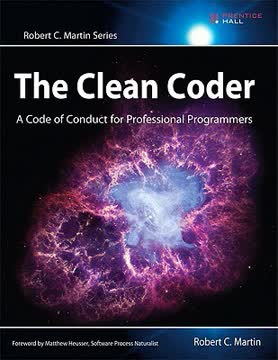Key Takeaways
1. Professionalism in software development requires taking responsibility and saying "no"
"Professionals speak truth to power. Professionals have the courage to say no to their managers."
Taking responsibility is at the core of professionalism in software development. This means owning up to mistakes, meeting commitments, and delivering high-quality work. Professionals understand that their actions have consequences and are willing to be accountable for them.
Saying "no" is an equally important aspect of professionalism. This involves:
- Refusing unrealistic deadlines
- Pushing back against poor practices
- Declining to compromise on quality
- Avoiding overcommitment
Professionals recognize that saying "no" when necessary protects both themselves and their team from potential failures and maintains the integrity of their work.
2. Test-Driven Development (TDD) is essential for producing high-quality code
"The jury is in. The controversy is over. TDD works."
Benefits of TDD include:
- Improved code quality
- Reduced defect rates
- Better design and architecture
- Increased confidence in code changes
TDD involves writing tests before writing the actual code. This approach forces developers to think about the design and functionality of their code before implementation, leading to cleaner, more modular, and more maintainable code.
Implementing TDD requires discipline and practice. It may slow down initial development, but it pays off in the long run by reducing bugs, improving code quality, and making it easier to refactor and maintain code over time.
3. Effective time management and focus are crucial for productivity
"Programming is an intellectual exercise that requires extended periods of concentration and focus."
Managing time effectively is critical for software developers. This involves:
- Prioritizing tasks
- Avoiding distractions
- Using techniques like the Pomodoro method
- Taking regular breaks to recharge
Maintaining focus is equally important. Developers should recognize their peak productivity hours and structure their work accordingly. It's essential to create an environment conducive to deep work and to minimize interruptions during these periods.
Professionals also understand the importance of work-life balance and avoid burning out by managing their energy levels and taking time for personal activities and rest.
4. Estimation is a skill that requires practice and clear communication
"An estimate is a guess. No commitment is implied. No promise is made."
Improving estimation skills involves:
- Breaking tasks into smaller, more manageable pieces
- Using historical data and past experiences
- Considering potential risks and uncertainties
- Regularly reviewing and adjusting estimates
Professionals understand that estimates are not commitments. They communicate clearly about the uncertainties involved and provide ranges rather than single numbers when appropriate.
Effective communication of estimates is crucial. This includes explaining the assumptions behind the estimate, providing context, and updating stakeholders if circumstances change. Professionals also resist pressure to provide unrealistic estimates or commit to deadlines they know are impossible to meet.
5. Handling pressure professionally involves staying calm and relying on disciplines
"The professional developer is calm and decisive under pressure."
Staying calm under pressure is a hallmark of professionalism. This involves:
- Maintaining perspective
- Focusing on solutions rather than problems
- Communicating clearly with team members and stakeholders
- Avoiding the temptation to cut corners or compromise quality
Professionals rely on their established disciplines and best practices when under pressure. They understand that abandoning good practices in times of stress often leads to more problems in the long run.
Managing expectations is also crucial when dealing with pressure. This includes being honest about challenges, providing regular updates, and proposing realistic solutions rather than making promises that can't be kept.
6. Collaboration and teamwork are fundamental to successful software development
"Programming is all about working with people."
Effective collaboration involves:
- Clear communication
- Active listening
- Respect for diverse perspectives
- Willingness to compromise and find solutions together
Professionals understand that software development is a team sport. They actively work to break down silos, share knowledge, and support their colleagues.
Pair programming and code reviews are valuable practices that promote collaboration and improve code quality. Professionals are open to feedback and view it as an opportunity for growth rather than criticism.
7. Continuous learning and practice are vital for professional growth
"Professionals practice. True professionals work hard to keep their skills sharp and ready."
Continuous learning is essential in the rapidly evolving field of software development. This includes:
- Staying up-to-date with new technologies and best practices
- Reading books and articles
- Attending conferences and workshops
- Experimenting with new tools and techniques
Deliberate practice is equally important. This involves:
- Working on side projects
- Participating in coding challenges
- Contributing to open-source projects
- Regularly revisiting and refining fundamental skills
Professionals understand that learning is a lifelong journey and take responsibility for their own growth and development.
8. Acceptance testing ensures clear communication of requirements
"The purpose of acceptance tests is communication, clarity, and precision."
Benefits of acceptance testing include:
- Clearer understanding of requirements
- Reduced misunderstandings between developers and stakeholders
- Early detection of issues and inconsistencies
- Improved overall software quality
Acceptance tests serve as a formal specification of how the system should behave. They are written in collaboration between developers, testers, and business stakeholders to ensure a shared understanding of the requirements.
Automating acceptance tests allows for faster feedback and helps catch regressions early. Professionals advocate for and implement automated acceptance testing as part of their development process.
9. Mentoring and craftsmanship are key to developing skilled professionals
"School can teach the theory of computer programming. But school does not, and cannot teach the discipline, practice, and skill of being a craftsman."
Mentoring plays a crucial role in developing skilled professionals. This involves:
- Sharing knowledge and experience
- Providing guidance and feedback
- Challenging mentees to grow and improve
- Modeling professional behavior and practices
Craftsmanship in software development is about more than just technical skills. It encompasses:
- A commitment to quality
- Continuous improvement
- Ethical behavior
- Pride in one's work
Professionals recognize their responsibility to mentor and guide less experienced developers, helping to cultivate the next generation of skilled practitioners and maintain high standards in the industry.
Last updated:
FAQ
What's "The Clean Coder" about?
- Professionalism in Programming: "The Clean Coder" by Robert C. Martin is a guide to professional conduct for software developers, emphasizing the importance of professionalism in the field.
- Code of Conduct: It outlines a code of conduct for programmers, focusing on responsibility, accountability, and ethical behavior in software development.
- Practical Advice: The book provides practical advice on how to handle common challenges faced by programmers, such as dealing with pressure, managing time, and saying no.
- Improving Software Craftsmanship: It aims to improve the craft of software development by encouraging developers to adopt disciplined practices and continuous learning.
Why should I read "The Clean Coder"?
- Enhance Professionalism: Reading this book can help you enhance your professionalism and improve your reputation as a reliable software developer.
- Practical Guidance: It offers practical guidance on handling real-world challenges in software development, making it a valuable resource for both new and experienced programmers.
- Ethical Framework: The book provides an ethical framework for making decisions, which is crucial in maintaining integrity and trust in the workplace.
- Career Growth: By adopting the practices and principles outlined in the book, you can advance your career and contribute positively to your team and organization.
What are the key takeaways of "The Clean Coder"?
- Responsibility and Accountability: Programmers should take responsibility for their work and be accountable for their mistakes, striving to deliver high-quality software.
- Saying No: Learning to say no is crucial when faced with unrealistic demands or deadlines, ensuring that commitments are realistic and achievable.
- Continuous Learning: Developers should continuously learn and practice their craft to stay relevant and improve their skills.
- Testing and Clean Code: Emphasizes the importance of writing clean, maintainable code and using test-driven development to ensure software quality.
What is the "do no harm" approach in "The Clean Coder"?
- Avoiding Bugs: Programmers should strive to avoid introducing bugs into the software, as they can cause significant harm to the project and the business.
- Testing Thoroughly: Code should be thoroughly tested to ensure it works as intended, with automated tests providing a safety net for changes.
- Maintaining Structure: The structure of the code should be maintained to ensure it remains flexible and easy to change, preventing future issues.
- Continuous Improvement: Developers should continuously refactor and improve the codebase to prevent it from becoming rigid and difficult to work with.
How does "The Clean Coder" suggest handling pressure?
- Avoiding Pressure: The book advises avoiding pressure by managing commitments carefully and maintaining clean code to prevent last-minute crises.
- Staying Calm: Under pressure, developers should remain calm and rely on their disciplines and training to guide them through challenging situations.
- Effective Communication: Communicating effectively with the team and stakeholders can help manage expectations and reduce pressure.
- Seeking Help: When under pressure, seeking help from colleagues and collaborating can provide support and lead to better solutions.
What is the role of acceptance testing in "The Clean Coder"?
- Defining Done: Acceptance tests help define what "done" means for a feature, ensuring that all parties agree on the requirements and expectations.
- Automated Tests: These tests should be automated to provide a reliable and repeatable way to verify that the software meets the specified requirements.
- Collaboration: Acceptance tests are created through collaboration between developers, testers, and stakeholders, ensuring that all perspectives are considered.
- Reducing Ambiguity: By specifying requirements in the form of tests, ambiguity is reduced, leading to clearer communication and fewer misunderstandings.
What does "The Clean Coder" say about saying no?
- Importance of Saying No: Saying no is crucial when faced with unrealistic demands or deadlines, protecting the quality of the work and the well-being of the developer.
- Professional Responsibility: It is a professional responsibility to push back against requests that cannot be reasonably fulfilled without compromising standards.
- Negotiation: Saying no should be part of a negotiation process to find a mutually agreeable solution that meets the needs of the business and the capabilities of the team.
- Avoiding Overcommitment: By saying no when necessary, developers can avoid overcommitment and ensure they can deliver on their promises.
How does "The Clean Coder" define professionalism in programming?
- Taking Responsibility: Professionalism involves taking responsibility for one's work and being accountable for the outcomes, both good and bad.
- Continuous Improvement: Professionals continuously seek to improve their skills and knowledge, staying current with industry trends and best practices.
- Ethical Behavior: Ethical behavior is a cornerstone of professionalism, ensuring that developers act with integrity and honesty in all their dealings.
- Commitment to Quality: Professionals are committed to delivering high-quality software, adhering to best practices and standards to achieve this goal.
What is the significance of test-driven development (TDD) in "The Clean Coder"?
- Ensuring Quality: TDD is a discipline that helps ensure the quality of the software by writing tests before the code, guiding development.
- Confidence in Code: By having a suite of tests, developers can have confidence that their code works as intended and that changes won't introduce new bugs.
- Design Influence: TDD influences design by encouraging decoupled and testable code, leading to better architecture and maintainability.
- Professional Practice: TDD is presented as a professional practice that developers should adopt to improve their craft and deliver reliable software.
What are the best quotes from "The Clean Coder" and what do they mean?
- "Professionalism is all about taking responsibility." This quote emphasizes the importance of being accountable for one's work and actions as a software developer.
- "QA should find nothing." This highlights the goal of developers to deliver software that is so well-tested and reliable that QA finds no issues.
- "Saying yes to dropping our professional disciplines is not the way to solve problems." This warns against compromising standards and practices in the face of pressure or deadlines.
- "The only way to prove that your software is easy to change is to make easy changes to it." This underscores the importance of maintaining clean and flexible code that can be easily modified.
How does "The Clean Coder" address time management?
- Prioritizing Tasks: Developers should prioritize tasks based on their importance and urgency, focusing on what delivers the most value.
- Avoiding Meetings: Unnecessary meetings should be avoided to maximize productive time, with developers attending only those that are essential.
- Using Techniques: Techniques like the Pomodoro Technique can help manage time effectively by breaking work into focused intervals.
- Balancing Work and Life: Time management also involves balancing work with personal life, ensuring that developers maintain their well-being and avoid burnout.
What is the role of mentoring in "The Clean Coder"?
- Guiding New Developers: Mentoring is crucial for guiding new developers, helping them learn best practices and develop their skills.
- Sharing Knowledge: Experienced developers should share their knowledge and experience with less experienced colleagues to foster growth and development.
- Building a Culture: Mentoring helps build a culture of learning and improvement within a team, encouraging continuous development.
- Professional Responsibility: It is a professional responsibility for senior developers to mentor and support junior team members, contributing to the overall success of the team.
Review Summary
The Clean Coder receives mixed reviews, with many praising its insights on professional software development. Readers appreciate the author's anecdotes and advice on work ethics, estimation, and communication. Some find the book outdated or extreme in its expectations, particularly regarding work hours. Critics note repetitive stories and a self-centered tone. Despite disagreements, most reviewers recommend it as a valuable resource for aspiring professional programmers, highlighting its emphasis on discipline, responsibility, and continuous learning.
Similar Books

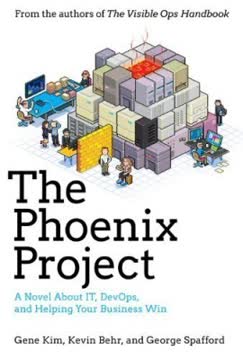
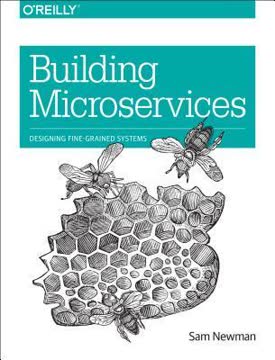
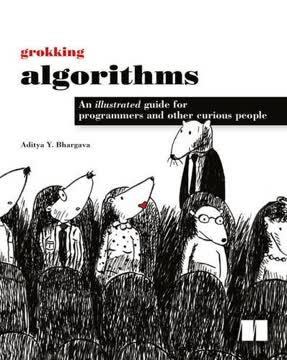
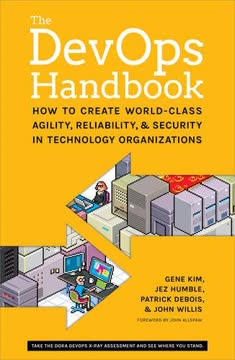
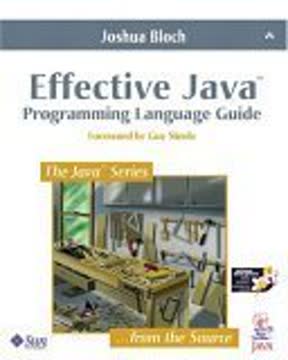
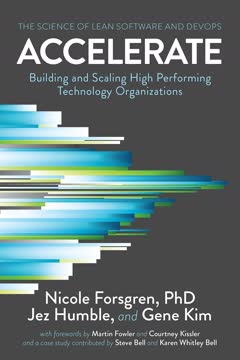
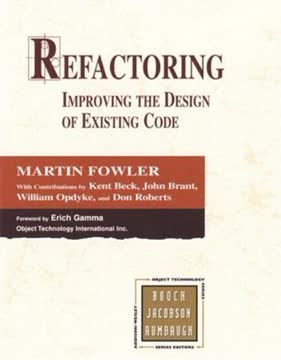
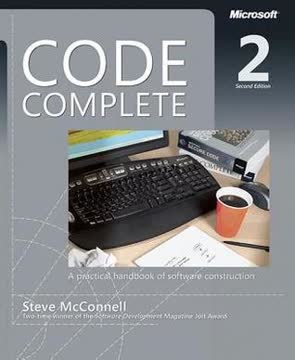
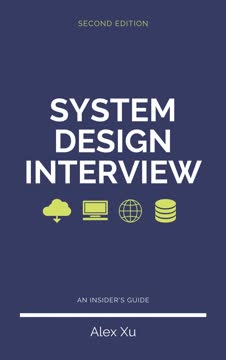
Download PDF
Download EPUB
.epub digital book format is ideal for reading ebooks on phones, tablets, and e-readers.
